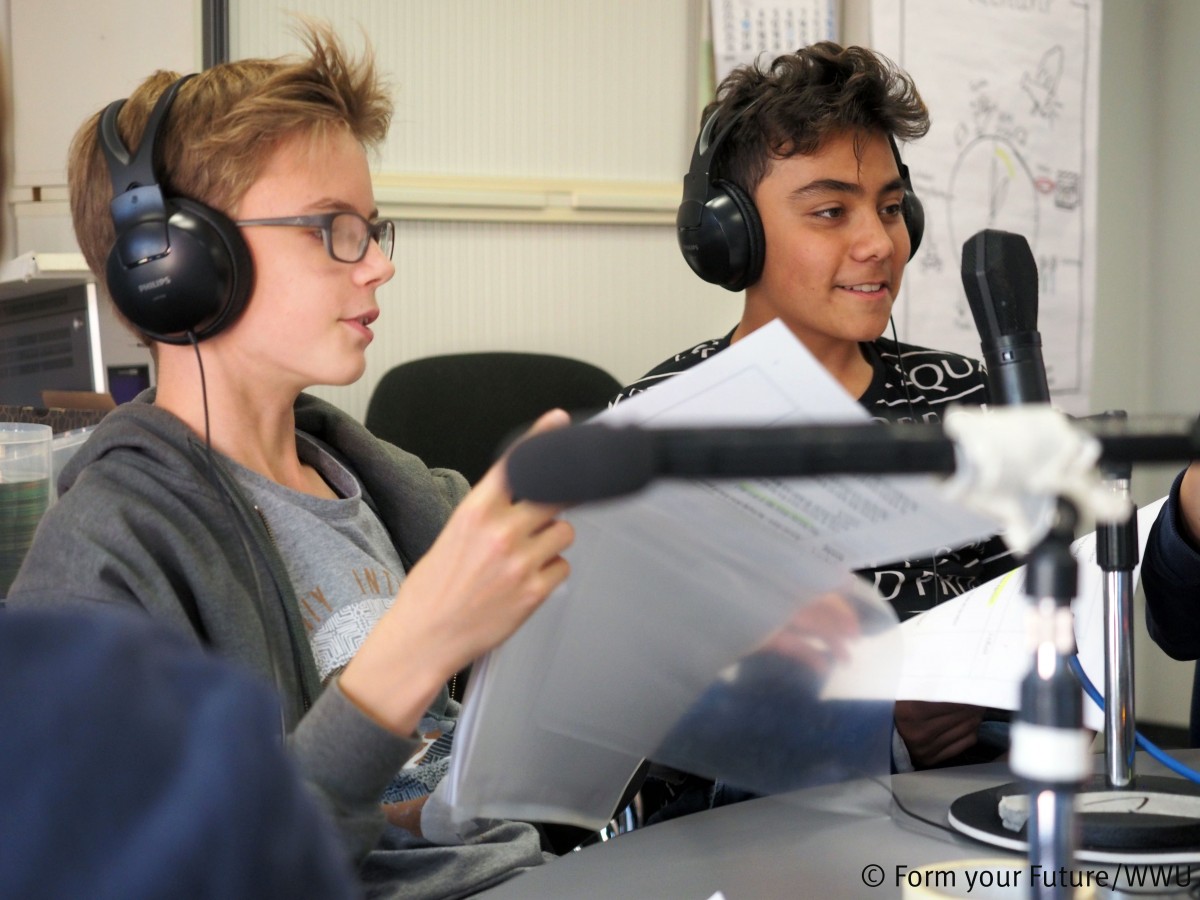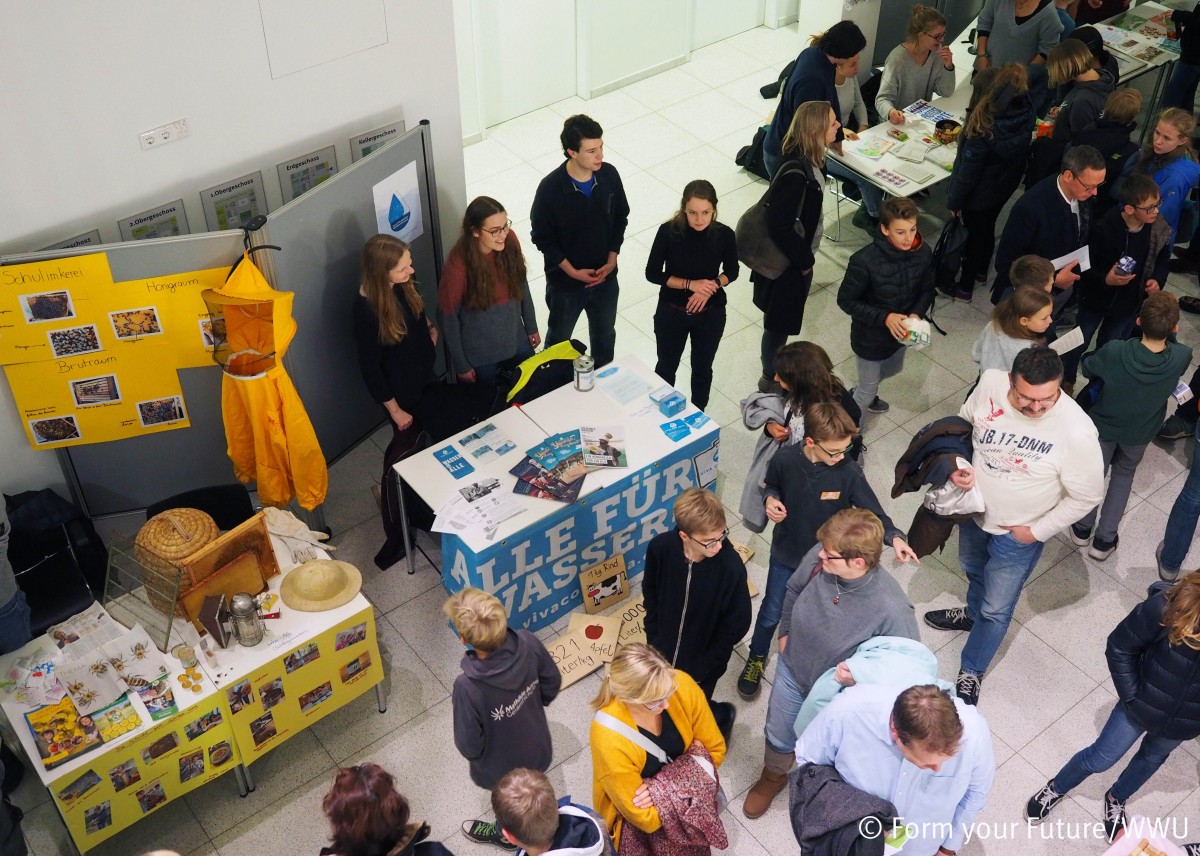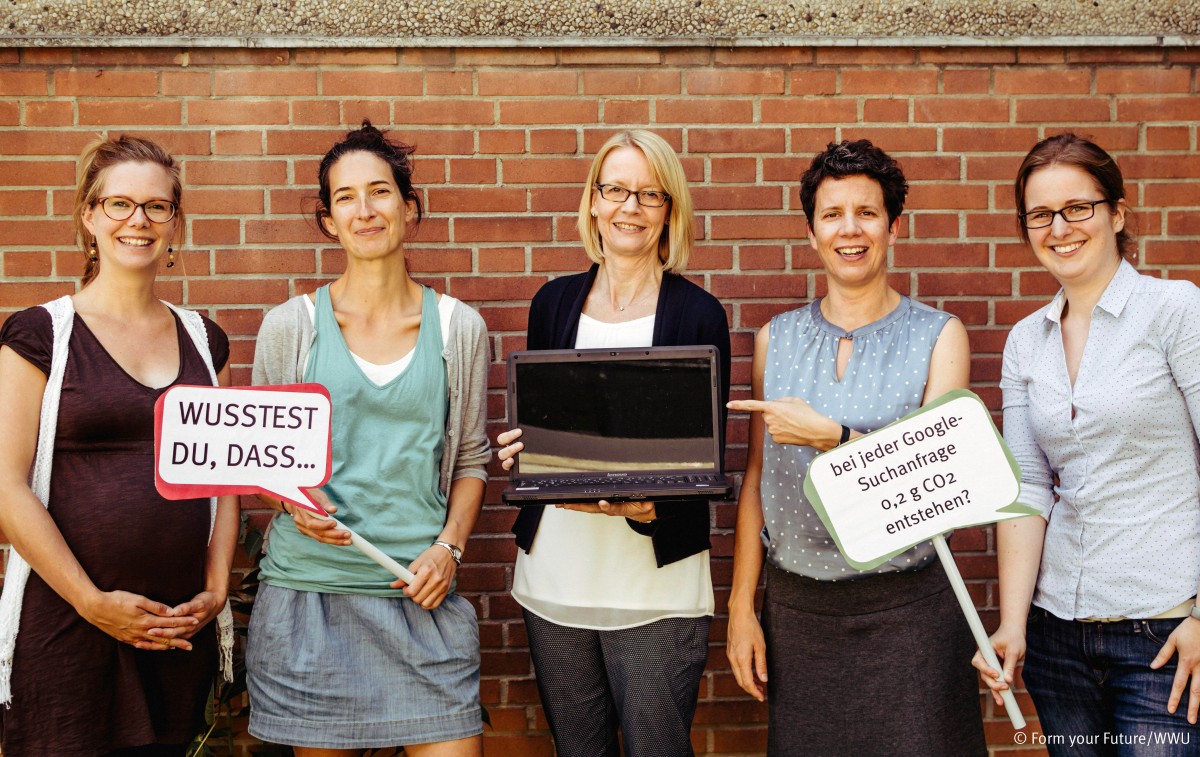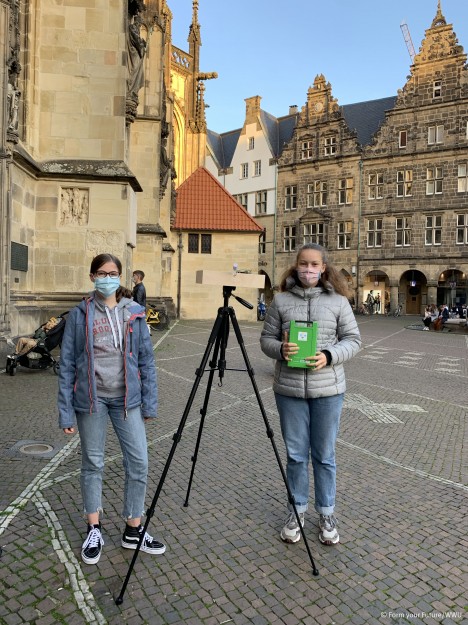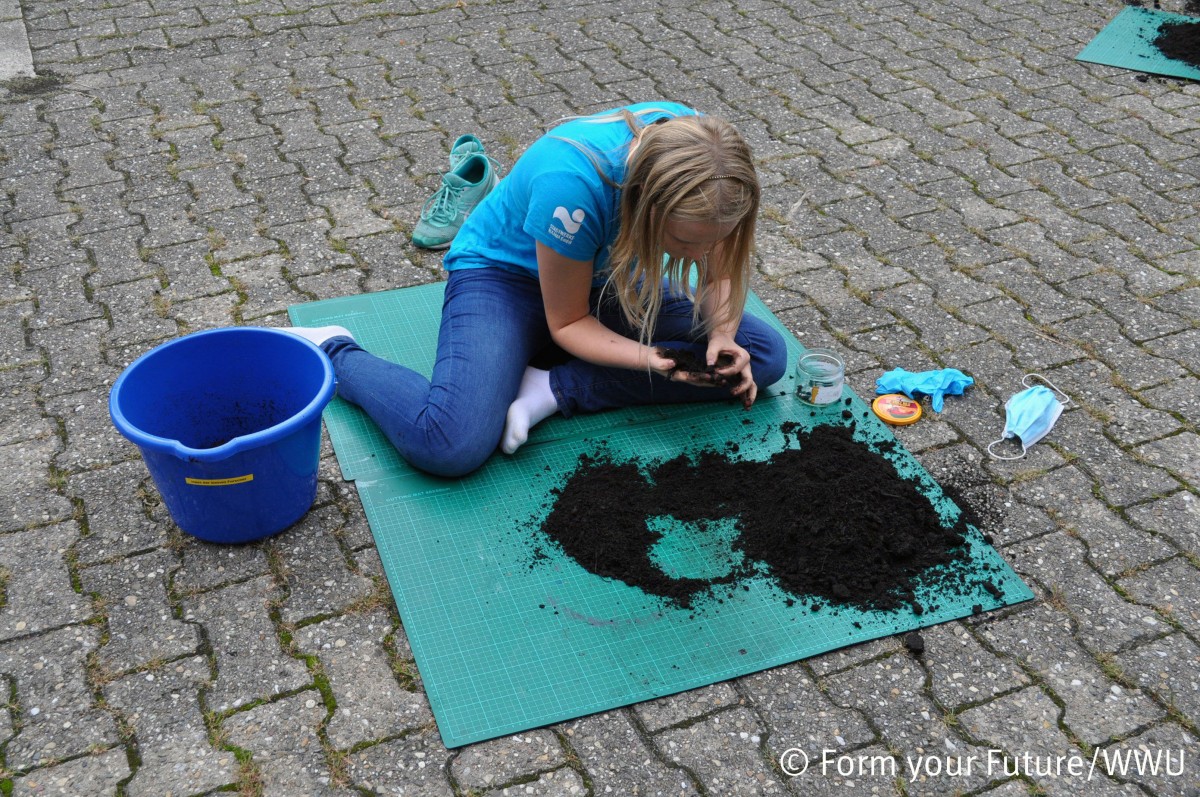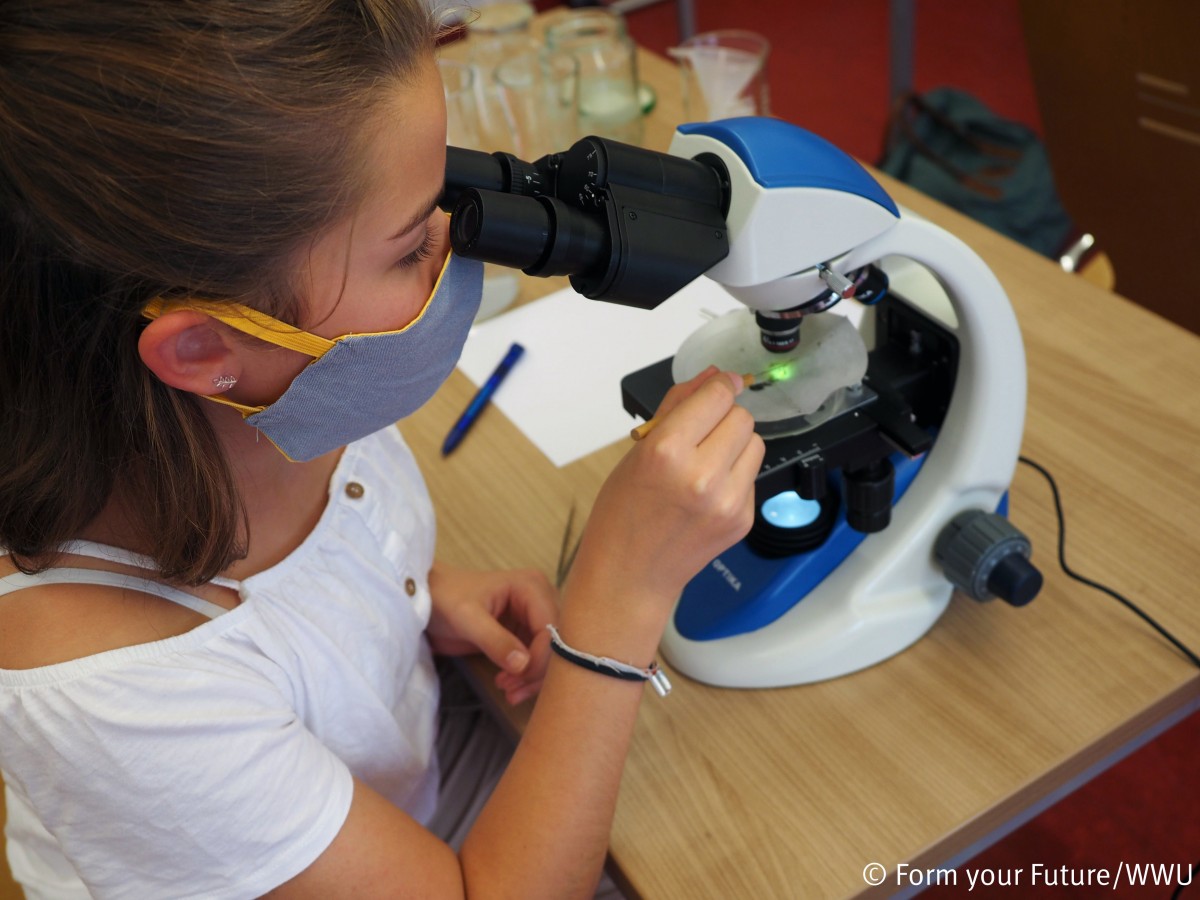
Learning through research – for more sustainable behaviour
From acquiring knowledge … to acting on it: in the “Form your Future” project, research staff from Münster University’s Experimental lab “MExLab ExperiMINTe” train young people as “ambassadors for sustainability”. The aim is to develop and produce research issues and campaigns which deal with the topics of atmosphere and climate change, water and soil, and waste and recycling.
“Children are our future,” says project team member Biggy-Nadine Wendt, “and that’s why we don’t only want to teach about sustainability in theory, we also want to make it something that can be experienced by working together in carrying out research and planning campaigns.” The project started in November 2018 with 80 young people from classes 7 and 8 from 13 different schools in the Münsterland. Within 15 months, the schoolchildren took part in up to twelve workshops – until they received their certificates as ambassadors for sustainability in January 2020. A further cohort, likewise with 80 participants, started in February 2020 and is expected to complete the project in the summer of 2021.
“Form your Future” is divided into three phases. In an introductory workshop the young people learn what sustainability means. After this, they work in small teams and devise research issues which they work on, discuss and evaluate with help from the research associates at the MExLab ExperiMINTe, as well as from external experts from the scientific and the practical fields. Is there any microplastic in Lake Aa? How does traffic influence the concentration of carbon dioxide (CO2) in the air? How can food best be stored? The young people investigate these and other questions on the basis of the principle of learning through research.
The schoolchildren also go public with a campaign designed by themselves. In the first project, for example, they produced a cartoon and a radio programme which was heard on local radio in Münster. The team also invited the public to get involved in “Zero Waste” Day of Action. Another group had a stand at Münster City Library, where they provided information on climate change and ecological farming. “The earlier people begin to understand problems and contexts, the more the idea of sustainability will become established in everyday life,” says Wendt. “The young people come to see us voluntarily after school. That shows that they are very interested in the subject of sustainability,” she adds. The project is accompanied by a study to determine its effectiveness. The researchers examine what influence the programme has on young people’s awareness of sustainability and their behaviour with regard to sustainability. With the aid of quantitative questionnaires, they aim to find out for example to what extent the idea of sustainability has become established in young people’s everyday behaviour, and how far their participation in the project leads to long-term engagement in the field of sustainability. The results of the study will be published as a recommendation for further action after the project is completed.
“Form your Future” is funded by the German Federal Environmental Foundation (DBU); an advisory board provides scientific advice.

